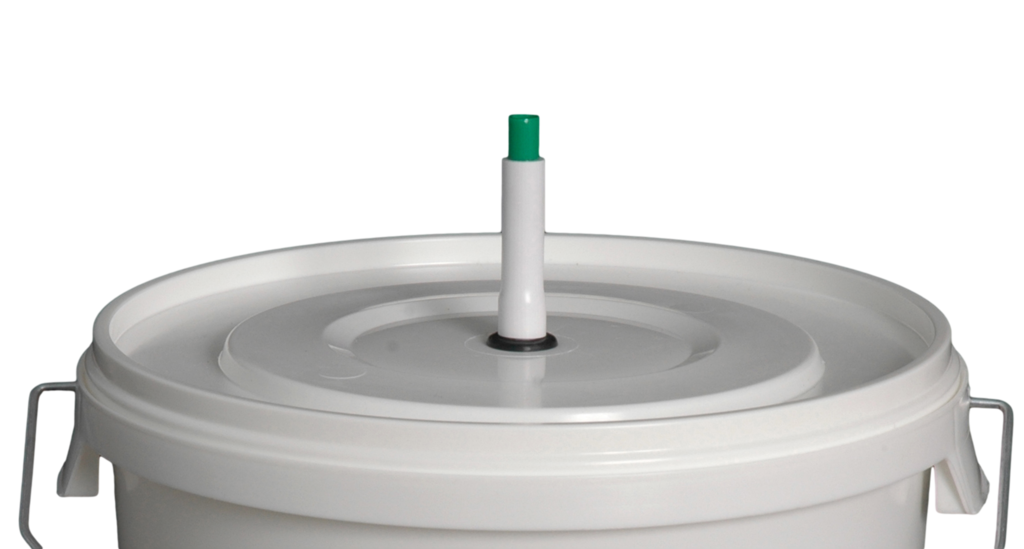Getting started with homebrewing seems straightforward buy a kit, some ingredients, spend a day brewing, then drink beer, but there are a few considerations before starting to guarantee a successful experience.
A few years ago, I embarked on my first homebrewing experience. At the time, I was living in a group house. To say that we enjoyed drinking beer and wine would be an understatement. The recycling bin looked as though we ran an underground bar. Eventually, the idea was proposed that we could “save money” by homebrewing. (If I had a time machine I would send this article to myself.). One of my roommates, Agent S, bought a Groupon (Back when Groupon was popular) for the Northern Home Brewers Homebrewing kit. When it arrived, I was skeptical that the kit had everything we needed for homebrewing.
When brew day arrived, we watched the how-to DVD three times. I don’t remember much about the process, except it was similar to brewing traditional English tea. When the wort was ready, we set it aside to ferment for a few weeks. Once the wort was ready, we transferred it to bottles. For me the second stage was a mix bag, I enjoyed the chemistry but I hated the bottling. Again, we waited for the beer to finish conditioning to a drinkable state. Our beers had three “accidental styles” drinkable, part sediment, and never matured. Overall it was an enjoyable and enlightening experience. But I wish we had had reasonable expectations and better resources at hand.
Sara
With my limited experience, I decided my source needed to be the complete opposite experienced and respected as a homebrewer. Enter Sara Bondioli, co-founder of HOPS and president of DC Homebrewers, the local chapter of the Homebrewers Association of America. With over six years of experience as a homebrewer, more than 40 batches under her apron, and a leader in the local homebrew community Sara was the ideal choice.
Expectations
The first topic we discussed was the idea of homebrewing to “save money”. Where Sara quickly dashed the idea that homebrewing will save the brewer as much money as hoped after purchasing supplies and equipment. Over time homebrewing can save you money but it depends on ingredients and equipment. In other words, don’t use “saving money” as a reason to start homebrewing.
Following that, I wanted to know about what type of time commitment should a novice expect. Sara explained that the time commitment corresponds with the beer style because it affects the timing when making the wort and fermenting. On top of that, first and second batches aren’t known for winning prizes. It will take time for you to acquire the skill to consistently brew a drinkable beer. Basically, don’t start homebrewing if you want a quick and cheap beer.
Equipment
So then, how much equipment does a novice need to start? Not a lot. The extract method, which is a popular beginner method requires at bare minimum: a stock pot, stove, something to ferment the wort in, and either a bucket or carboy to ferment the beer. There is also, the all-grain method, which is comparable to the boil-in-a-bag method, which uses the same equipment except a bigger stock pot because it uses more water.
Homebrewing equipment and/or kits can be purchased online or in-person. Sara recommends E-bay, Craigslist, and Facebook groups for reliable second-hand equipment. Additionally, membership in a local homebrew group is a great way to find cheap equipment. The DC Homebrews Facebook group constantly has people selling or giving away equipment. Local homebrew shops and specialty homebrew websites are an option for new equipment. Sara recommends staying away from the Mr. Beer kits as the ingredients aren’t fresh or quality beer.
Beer style
Now that we understand the expectations and equipment, what style of beer should novice homebrewers try? For the beginner, Sara suggests basic beers such as India Pale Ales (IPA) and dark beers that will help cover flaws. The IPA uses a large quantity of hops, which word off bacteria and masks off flavors with strong flavors and aromas. Dark beers, such as stouts and porters use malts which have a bold malty character and tons of flavor. Homebrew shops have ingredient kits and instructions that will help save money.
Space
Finally, the important issue space the one item you can’t buy or borrow. Space is an issue for the wort and once the beer has been bottled or kegged. Ideally, the space should be cool and dark (or close to it). When my roommate and I brewed beer, we stored the original wort in the kitchen while it fermented. Then after it was bottled we moved the crates to the small storage room under the stairs with a black plastic bag around it, just in case any bottles burst. In summary, choose somewhere that is easy to clean-up and know how much beer you intend to brew and then plan accordingly.
Resources
Lastly, I wanted to know what resources does Sara suggest for the novice homebrewer. For brewing tips, she suggested Homebrew Talk forum, a forum for the discussion of brewing fermented food/drinks from tea to beer. However, there can be conflicting information, in which case you choose. Local homebrew clubs in person or online are a valuable resource. Sara recommended Charlie Papazian’s The Complete Joy of Homebrewing. Papazian is a well-known figure in the homebrew world, involved in homebrewing across the country. While some of the information might be out-of-date it is still relevant. Also, there is a section about the de-evolution of women’s role in homebrewing.
In summary, your first steps into homebrewing does not need to be intimidating. Joining a local homebrew club, officially or unofficially, will provide you with a support network, information, and access to reduced price supplies to succeed toward any goal, whether as a one-off or to eventually become a master homebrewer. Online resources are plentiful and diverse, allowing anyone, anywhere to be a part of the homebrew community. Most importantly, do not feel the need to spend substantial amounts of money on your first time out stay simple and enjoy the process.
[amazon_link asins=’B005G20IIG,0062215752,0062215779,0060531053,B00OKROO7O,B002CJPYO4,B00E28JG3S’ template=’ProductCarousel’ store=’districtnerds-20′ marketplace=’US’ link_id=’0341ab2c-a937-11e7-9737-f3d2f7847730′]





A Beginner’s Guide To Homebrewing Basics » The District Nerd – The Black Lion Journal
November 22, 2017[…] Article By A.E. Hellar Of The District Nerd | The Black Lion is a humble interdisciplinary journal that values your voice. For contribution opportunities, visit the Opportunities page; to learn more about submitting to the journal’s creative magazine, visit the The Wire’s Dream Magazine: Submit. | Copyright Policy […]
You Don’t Have Any Excuse Not To Homebrew - The District Nerd
May 26, 2020[…] hear it time and time again: I would try to homebrew, BUT […]